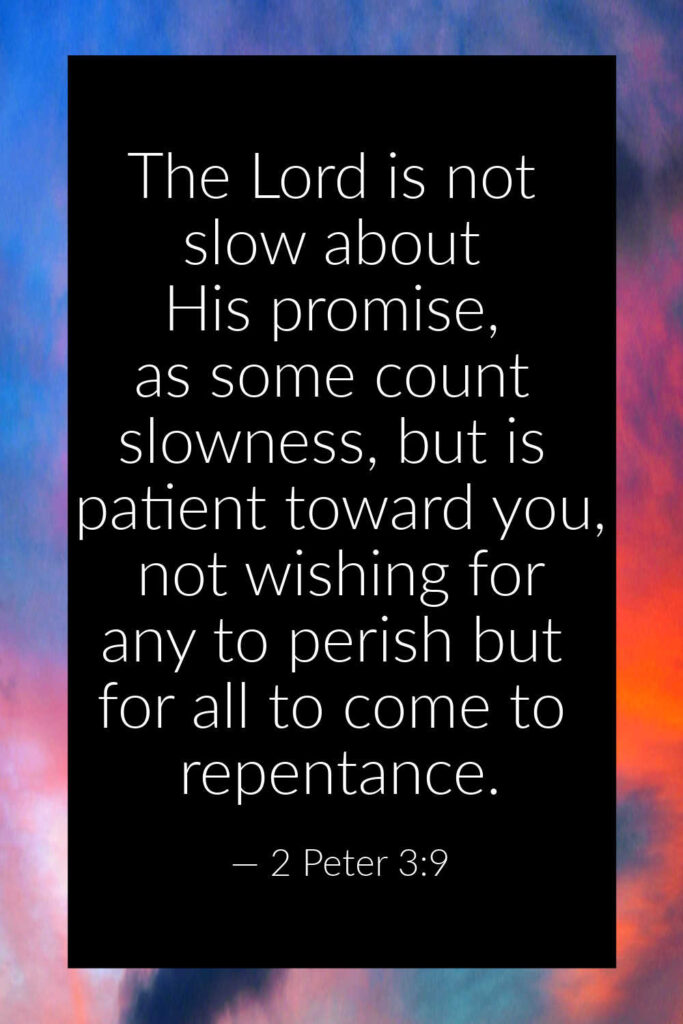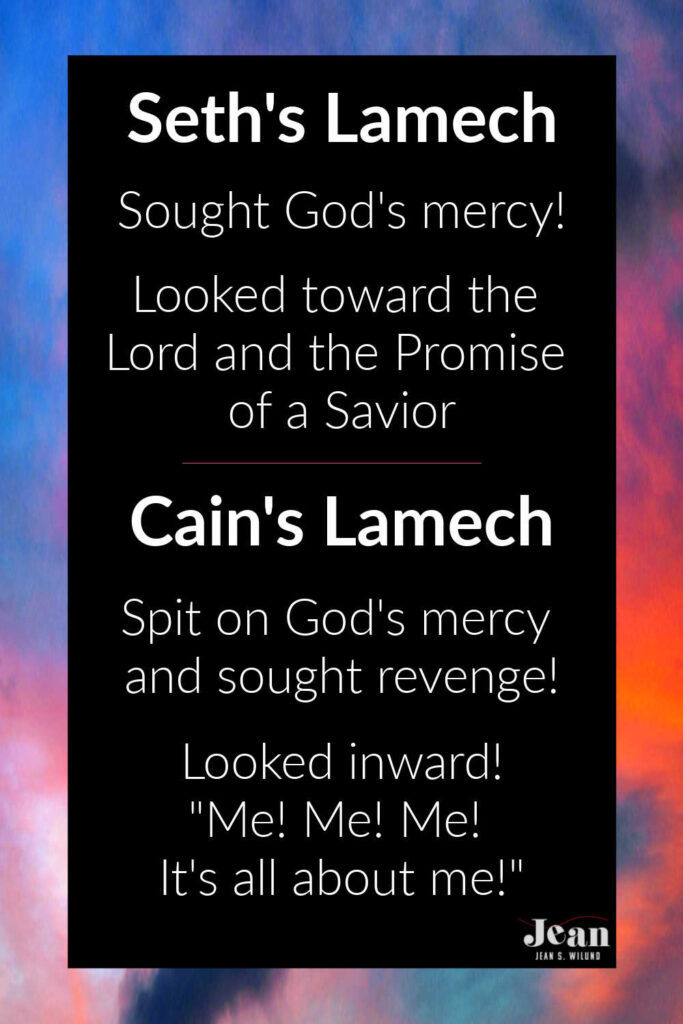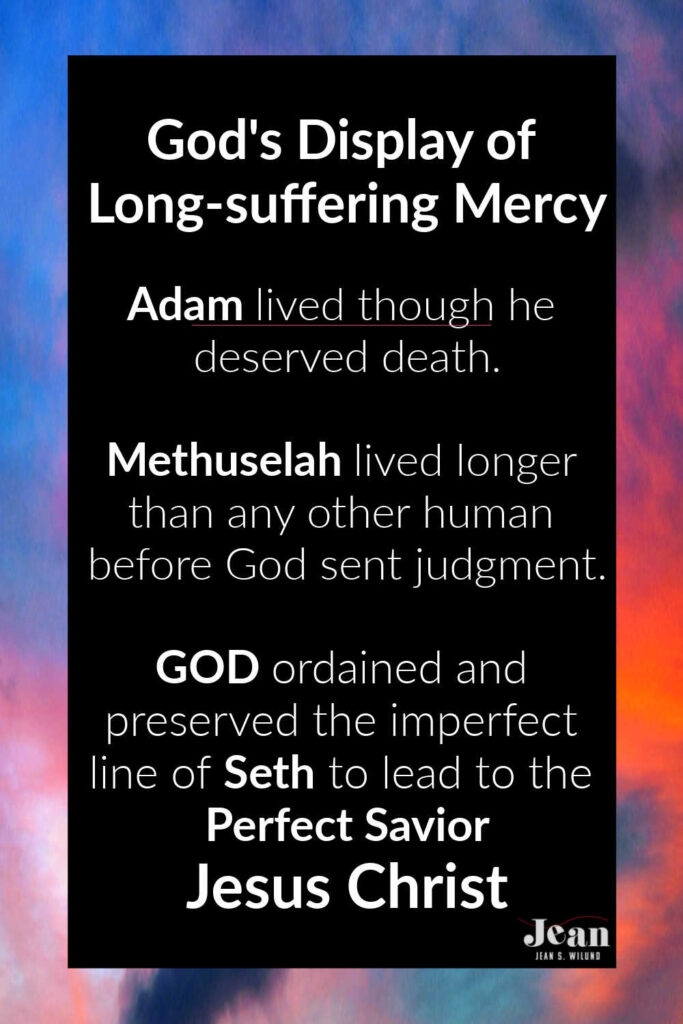Methuselah. For being one of the most famous men in the Bible, we don’t even know a lot about him. But he is absolutely a trivia question favorite.
Do you know why? You probably do. Methuselah lived longer than any other human in history—969 years.
But do you know why God ordained for him to live longer than anyone else? Keep reading or listen to the video above and discover what God teaches us through Methuselah.
God’s Mercy Displayed in Methuselah’s Life-Changing Name and Life
When Mary found out she was going to have a son—and not just any son, but the Son of the Living God—her life changed forever.
It was one of the most important moments in history, and Luke recorded the very moment she got the news.
When Enoch was sixty-five years old, he became the father of Methuselah.
No one recorded the moment he got the news, but the birth of Methuselah changed Enoch’s life forever.

I say that because what Moses did record is that it was after Methuselah was born that Enoch walked with God. He walked with God for 300 years—the rest of his life on earth.
Methuselah’s name gives us a clue as to why his birth made Enoch want to walk so close to God that he walked on home to heaven because God took him. Enoch never died.
Methuselah’s name means “man of the dart” or “man of the sending forth.”
Commentators tell us his name meant that Methuselah would live UNTIL the shooting out (or shooting forth) of God’s judgment. Until the time when God would cover the earth and judge man’s sins with the flood.
Enoch knew this because he was a prophet of God. We know he was a prophet because the New Testament author Jude wrote about one of Enoch’s prophecies. (We’ll look at that in the next video.)
Today, I want to focus on Methuselah’s name and how it reveals that God mercifully warned Enoch of the flood He’d send in his son’s generation. And that He chose to display his long-suffering mercy through Methuselah’s life—his very long life.
God’s Original Display of Mercy
God’s mercy had actually already been on display before Methuselah. He revealed back in Genesis 3 the very moment Adam and Eve rebelled against God by eating the fruit, and He didn’t drop them dead on the spot.
God had every right to do it, but He didn’t.

Methuselah’s birth started the countdown to judgment—to the flood. But God didn’t start counting at 10-9-8…
No, He started it at nearly 1,000—969 years of mercy for sinners who deserved death, not mercy.
Methuselah lived 969 years. Longer than any other man in history—(So, now you’re ready for your next Trivia game.)
But as year after year ticked by, God’s kind mercy stood in greater and greater contrast to the growing evil of their day. (Kind of reminds us of our days, doesn’t it?)
God gave mankind nearly a thousand years to hear and heed Enoch’s warnings. He also gave 120 years to hear and heed Noah’s warnings.
Don’t Miss This: God is Not Slow
Today, we see the long-suffering mercy of God on display as we wait for the return of Christ and the Day of Judgment.
Listen to what God says in 2 Peter 3:8-9:
“But do not let this one fact escape your notice, beloved, that with the Lord one day is like a thousand years, and a thousand years like one day.
The Lord is not slow about His promise [His promise to return], as some count slowness, but is patient toward you, not wishing for any to perish but for all to come to repentance.

Judgment is coming, but God’s long-suffering mercy is extravagant. He can be so patient because He’s eternal.
We rush because, for us, time if fleeting. We pray, “Teach us to number our days, Lord”
We’re each given a certain number of days on earth that only He knows. But God is the Ancient of Days. He has no beginning or end.
As Martin Luther said, “He who is from everlasting to everlasting can afford to wait.”
God waiting, and He’s carefully working out His long-suffering, eternal plan today just as as He did in the days of Enoch, Methuselah, Lamech, and Noah.
The Glaring Contrast Between Seth’s Genealogy and Cain’s
When Methuselah was 187 years old, he had a son named Lamech, who named his son Noah.

Noah means “this one will bring us rest or relief.” Relief from our toils. Relief from a world that loves its sin, not God. Relief from a world ripe for judgment.
The record of Seth’s genealogy ends here with Noah and his three sons: Shem, Ham, and Japheth.
Did you notice in Genesis 4 that Cain’s genealogy ended with 3 sons as well?
It ended with Lamech’s 3 sons. Not the Lamech we see in Genesis 5, but Cain’s Lamech.
Seth’s Lamech was Noah’s father. He sought God’s mercy.
Cain’s Lamech was a polygamist and a murderer. He spit on God’s mercy, and he sought revenge.
Seth’s Lamech looked toward the LORD and the Promise of a Savior. A Savior whose mercy would free those who will believe in Him from sin’s curse of death and judgment forever.
Cain’s Lamech looked inward. “God’s not the boss of me. I do as I please! Me! Me! Me! It’s all about me!” That was his heart attitude.
On Full Display: The Fullness of Evil and Mercy

Cain’s Lamech was the 7th descendant from Adam in Cain’s line.
Seven is a special number in the Bible. It’s symbolizes “spiritual perfection, completion, or fullness.”
Cain’s Lamech represented spiritual fullness of evil in the face of God’s patient mercy.
The seventh descendant in Seth’s line was Enoch. He represented the spiritual fullness of walking with God by faith.
The line of Seth was far from perfect, but it led to the Perfect One, Jesus Christ.
In God’s kind love and mercy, He preserved for Himself through Seth’s line, men and women who would walk with Him and lead to the Promised Messiah, our glorious Savior.
Genesis 5—Part 3: Escape from Judgment
In the next video we’ll look closer at exactly what Jesus our Savior was saving us from.
Until then, remember, it’s not about me. It’s not about you. It’s all about Him!
If you’ve missed any of the Genesis videos, check them out here.
Check out my YouTube Channel here.







Thank e